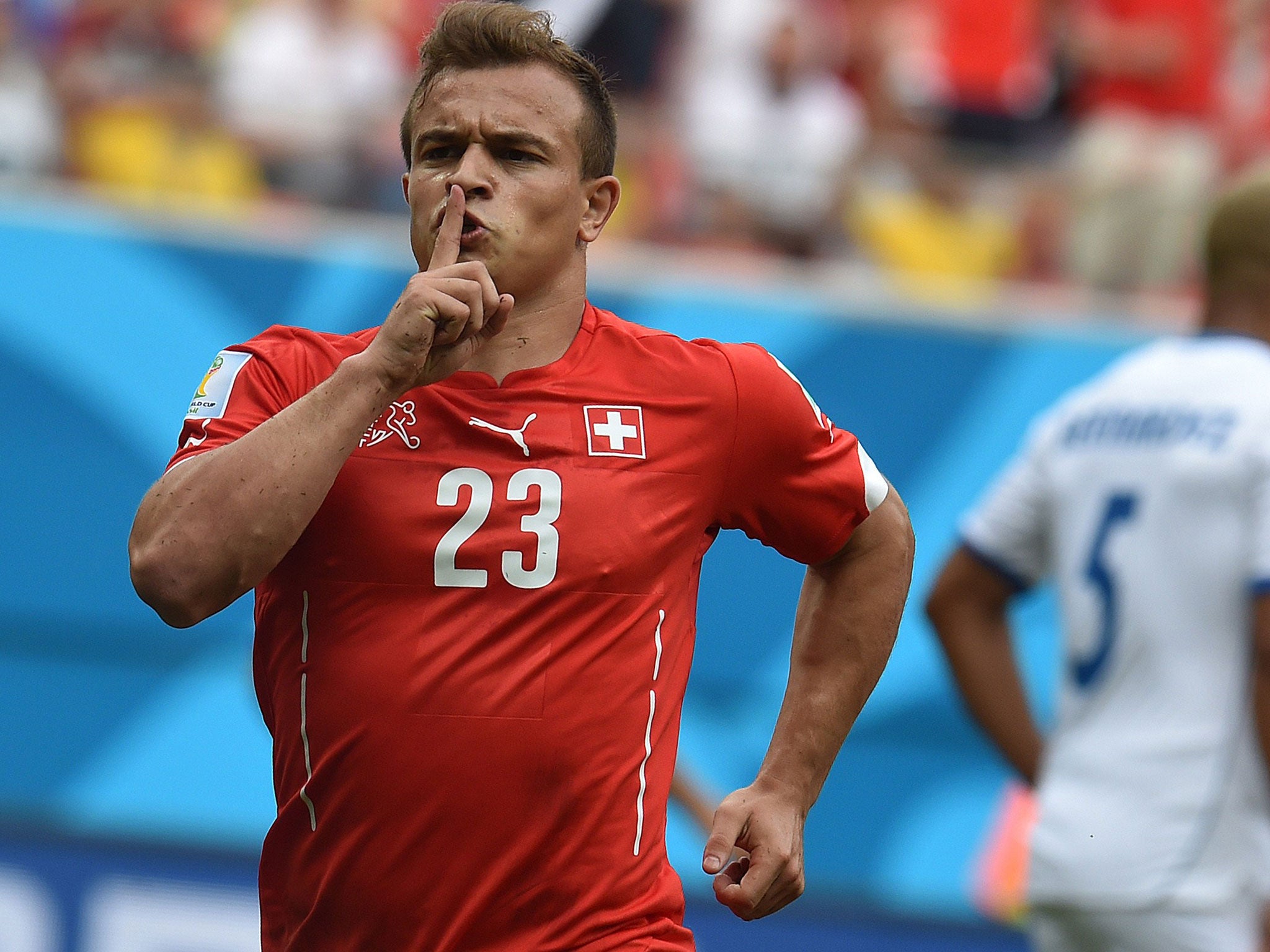Switzerland vs England: Can Swiss make the most of golden generation?

Switzerland has a population of eight million, winter sports are as popular as football, the average attendance of the top 20 teams in their domestic league system is around 7,000. So how is it they are top 10 in the Fifa rankings and were a minute from taking Argentina to a penalty shoot-out for a place in the World Cup quarter-finals?
There are two possible answers, and no one knows yet which is the right one. Indeed, it will probably not be known for a decade. The Swiss hope it is because they have developed a brilliant youth development system, but it could be that, as with Belgium, a largely fortuitous combination of circumstances has produced a rare crop of players.
That the current generation is, as the old cliché goes, Switzerland’s “golden one”, is not in doubt. In 2009, Switzerland won the Under-17 World Cup in Nigeria, beating the hosts in the final and Brazil, Germany and Italy en route. This is a competition England have never won and which, since clubs don’t withdraw players from it as they are too young for the first team, is a good reflection of talent.
Two years later, the Swiss reached the final of the European under-21 championships not conceding a goal for 431 minutes prior to Ander Herrera, now of Manchester United, and Thiago Alcantara, now of Bayern Munich, scoring in the final. That Spanish team also included David De Gea, Juan Mata, Javi Martinez and Cesar Azpilicueta.
The Swiss goalkeeper that tournament, Borussia Mönchengladbach’s Yann Sommer, is expected to line up against England on Monday having finally succeeded long-serving Diego Benaglio. Also in the squad are five others who featured in that game, including Bayern Munich’s Xherdan Shaqiri who scored a hat-trick in the World Cup against Honduras. Two players, Granit Xhaka of Mönchengladbach and Pajtim Kasami, who left Fulham for Olympiakos this summer, also played in the winning U-17’s XI in ’09 along with a further two members of the current squad.
Indeed, but for injuries to Nassim Ben Khalfa and Mario Gavranović, new Switzerland coach Vladimir Petkovic would have selected 10 players who featured in those two finals. That is an impressive return given the oldest, Sommer, is only 25.
While one reason for Switzerland’s recent rise, at youth and senior level, is a conscious and widely documented attempt to tap into the immigrant communities, notably those hailing from the Balkans, that is only part of a tightly structured youth development system.
Gareth Southgate, England’s under-21 coach but previously the FA’s head of elite development, told The Independent: “I went on a study visit three or four years ago. The big difference is that the federation fund youth development and dictate sessions and formation – everyone played 4-3-3. The programme was tightly monitored. There were three regional centres, backed by club centres. If the club didn’t do the sessions, they didn’t get funding.
“There is not much money in the club game so they need that funding which gives the federation a real hold. It is an interesting model, but it is a smaller country so it is easier to control.”
An even bigger difference is that in England the clubs do not need FA funding, so can, and do, follow their own path with the FA’s influence largely limited to coach education and running age-group teams. Not that they would necessarily copy the Swiss if they could.
“What you don’t know is whether it is just a good crop,” added Southgate. “Can they do it year in, year out? That is why we look more at the Dutch and Germans.”
While it is true the Swiss do not have the track record of those nations, a strong group did emerge a decade ago. Benaglio, Gokhan Inler, Stephan Lichtsteiner, Valon Behrami, Tranquillo Barnetta and Phillippe Senderos (a figure of fun in England, but a veteran of three World Cups) have been the spine of La Nati’s climb up the Fifa rankings. Born within two-year period – with Barnetta and Senderos in the 2002 U-17 championship-winning XI – they are now aged 29-30 and, aside from the retired Benaglio, are still around to guide the young guns.
Between the two generations, Petkovic has a decent side, better than most English fans would believe. This is partly because England have only lost once in 20 meetings, in Basel in 1981. In addition, few of their players come to the Premier League and those that do (Senderos, Kasami, Johan Djorou, Ramon Vega, Reto Ziegler) tend not to shine. The better Swiss cross the border north to the Bundesliga or south to Serie A.
Whether Petkovic can turn this mix of youth and experience into a side that can qualify, then make an impact at Euro 2016 remains to be seen. The Swiss did not get out of the group stage when co-hosting the Euro ’08 tournament and failed to reach Euro ’12. As with England, much depends on how their young players develop.
Join our commenting forum
Join thought-provoking conversations, follow other Independent readers and see their replies
Comments